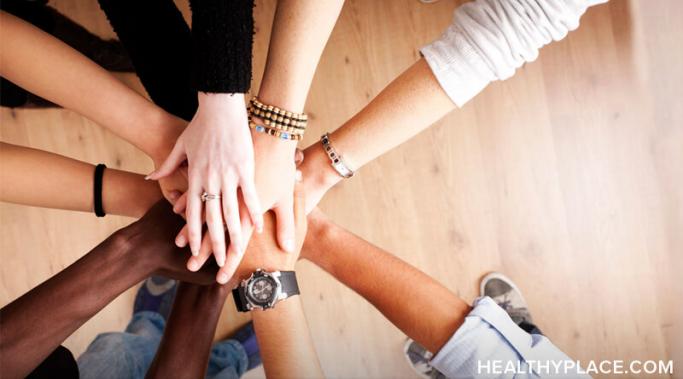Blogs
There are truths about dissociative identity disorder (DID) and me that I want you to know. I have held back sharing them with you, not because I am ashamed, but because I did not want to dishearten or discourage you about your own journey to wellbeing. Since I began writing for HealthyPlace, I've shared my stories of strength, courage, and hope as someone living with dissociative identity disorder. However, I must admit there is one story, one truth, I have not shared. (Note: This post contains a trigger warning.)
Conversations about your sex addiction are almost always a daunting task, but the conversations take on even higher stakes when you're confessing your secret sins to your family members. Some sex addicts keep their taboo desires and habits hidden from their loved ones for years or even decades; while others, like myself, choose to go all in and tell their family only a few months into the madness of active addiction. The conversations about sex addiction are never easy, but in my opinion, they can be extremely helpful in creating a healthy, transparent space with the people you love most.
Can you be saved from depression? Many mainstream films and TV shows about mental health push the concept of the "savior" figure. A character suffering from mental illness meets another character and, through their relationship -- often romantic in nature -- comes to find recovery and health, or at least a happy medium. While certain relationships can help enhance our personal wellbeing, we should be careful when evaluating them for signs that we are falling for the myth of the savior figure. Being saved from depression is a myth.
Anxiety relief is within your reach whenever you need it. When you're living with worry, fear, panic, dread, racing thoughts, and roiling emotions, it doesn't seem like relief from anxiety symptoms is in sight. That's because it clouds perceptions, makes itself seem real and true, and obscures things that could reduce its strength. Once you know where to look, though, you'll notice that opportunities for anxiety relief are almost everywhere. To get you started on your quest to reduce anxiety, here are nine places you can find anxiety relief.
It's normal to ask, "Why me?" when you have bipolar disorder. And while some people may see this as just feeling sorry for yourself, it's much more than that and it is very normal. It's certainly a question I have asked. So let's delve into the question of "why me" with bipolar disorder.
It's my final post on "Surviving ED" for HealthyPlace and I part with a hopeful goodbye. I've been grateful for the opportunity to write about and raise awareness of eating disorders. In recent years, I've witnessed the tide turning as the conversation about eating disorders has focused on its complexity and diversity. I hope that together, as survivors and mental health professionals and advocates, we continue chipping away at the stigma that accompanies food-related mental illness, so that more and more individuals struggling in isolation can get the help they need.
Depression damaged my relationship with my doctor because I learned I couldn't trust her. Just last year, I was diagnosed with a chronic autoimmune illness called Behcet's disease, but I've had it my whole life. Prior to diagnosis, my doctors treated my symptoms with heavy-duty steroids. It worked. The treatment wiped me clean of mouth ulcers, abdominal pain, migraines, knee swelling, and internal bleeding. It was like magic.
It might sound simple, but knowing how to process emotions instead of reacting to them has been a huge part of my mental health recovery journey. My automatic instinct when I feel any emotion is to react to it with another emotion. Then I react to that emotion, and the cycle continues until I have gotten myself truly worked up and the original emotion has been buried beneath layers of confusion and shame. Clearly this isn't the healthiest method for dealing with emotions. Through therapy and journaling, I'm learning to process my emotions instead of reacting to them.
We might not think about it explicitly, but responses to mental health stories can be shaped by stigma. It can be easy to read through posts online or hear someone speak about his or her mental health experiences and question the validity of them. In particular, in a day and age where people can present themselves as anything online, questioning can be good. But, it's important to consider how stigma may be shaping our responses to mental health stories.
Dialectical behavior therapy (DBT) for borderline personality disorder has changed my life for the better.










I haven't had a drink in 9 years and two months.
I Googled everything on the subject and have come to the conclusion it is not a relapse.
However, I am going to read labels more carefully!